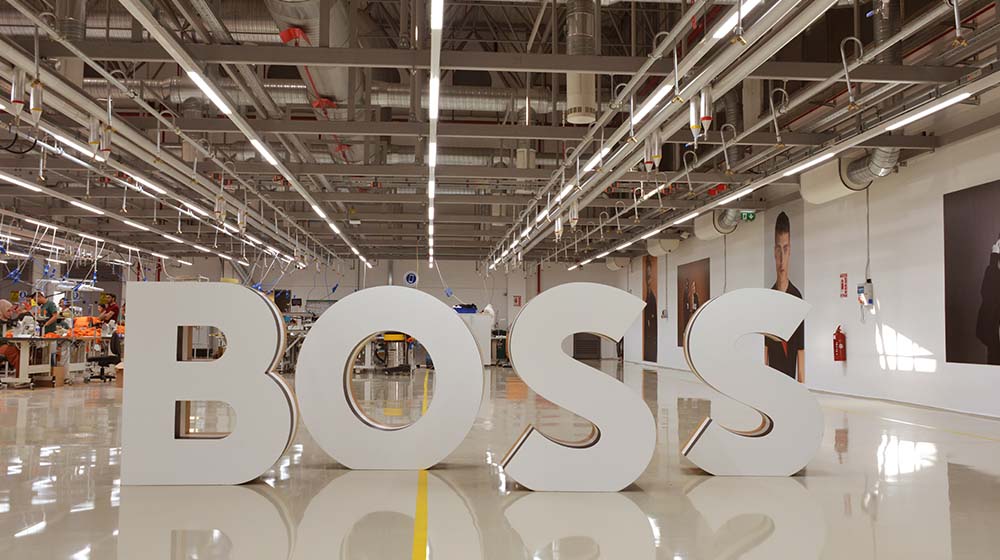Production & Suppliers
ACHIEVING JOINT RESPONSIBILITY
HUGO BOSS is committed to upholding human rights and protecting the environment, and works together with its suppliers to achieve these goals, mitigating environmental impacts and improving working conditions in the supply chain. To meet future sustainability challenges, we rely on learning together and share our knowledge with our partners.
HUGO BOSS provides ESG onboarding trainings to suppliers and specific capacity building programs to selected suppliers. Among other, we conduct trainings on topics such as working hours, environmental management, chemical management, climate action, gender equality, living wage and grievance mechanisms. They are implemented in collaboration with organizations like ZDHC, Partnership for Sustainable Textiles or Leather Working group.
We produce 20% of our products at own production sites. The remaining 80% are sourced from suppliers all over the world. HUGO BOSS has been working with its strategic Tier 1 suppliers for eleven years on average. We continuously support their growth and development. Specifically, in 2024, the Company spent around 46% of the total sourcing volume on strategic Tier 1 suppliers with the exception of own production facilities. These relationships are crucial to the company, they are the only way to ensure the high quality of raw materials and finished products. To create a collaborative approach, we provide our suppliers a benchmark with their peers that includes ESG-related parameters. The long-term relationships also make it possible to work on social and environmental subjects together.



